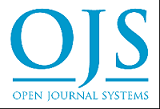Peran probiotik terhadap pembentukan toleransi imun pada bayi dengan alergi susu sapi: A literature review
DOI:
https://doi.org/10.33024/hjk.v18i7.451Keywords:
Alergi Susu Sapi, Bayi, Probiotik, Toleransi ImunAbstract
Background: One of the types of food allergy that often occurs in infants even those given exclusive breast milk is cow's milk allergy. In recent years, treatments for cow’s milk protein allergy have shifted from a cow’s milk protein-free diet to a more active intervention in regulating the immune system. At the infancy stage, the growth of immune response and food allergies is affected by probiotic modulated intestinal microbiota, through the potential of modulating immune tolerance in infants with cow’s milk protein allergy.
Purpose: To provide an overview of recent research results on the role of probiotics in the formation of immune tolerance in infants with cow's milk allergy.
Method: Descriptive research with Systematic Literature Review method conducted in June 2024 with PRISMA guidelines for RCT. Literature search is obtained through: PubMed, Scopus, ScienceDirect, Google Scholar, Cochrane Library, ProQuest, Wiley Online Library, MDPI, and Taylor & Francis Online with the range of 2019-2024. Of the 620 search results, 6 articles met the criteria and then analyzed.
Results: This systematic review shows that probiotics significantly have a role in developing immune tolerance including decreased symptoms, risk of infection, and sensitization in infants with cow’s milk protein allergy.
Conclusion: Probiotics provided in Extensively Hydrolyzed Casein-based Formula (EHCF) or Amino Acid-based Formula (AAF) have a role in developing immune tolerance in infants with cow’s milk protein allergy through modulation in the gut microbiota by affecting epigenetic mechanisms related to immune tolerance.
Suggestion: There is a need for synthesis of stronger current RCT results with more inclusion studies to evaluate the most effective dosage and duration of probiotic administration in the treatment of infants with cow’s milk allergy, especially its effect on developing immune tolerance.
Keywords: Cow’s Milk Allergy; Immune Tolerance; Infants; Probiotics.
Pendahuluan: Alergi susu sapi termasuk alergi makanan yang sering ditemui pada bayi, bahkan yang diberikan ASI eksklusif. Dalam beberapa tahun terakhir, tatalaksana alergi susu sapi beralih dari diet bebas protein susu sapi menjadi intervensi yang lebih aktif dalam memodulasi sistem imun. Pada masa bayi, perkembangan respon imun dan alergi makanan dipengaruhi oleh mikrobiota usus yang dimodulasi probiotik, dengan potensi modulasi toleransi imun pada bayi dengan alergi susu sapi.
Tujuan: Untuk memberikan gambaran dari hasil penelitian terkini tentang peran probiotik dalam pembentukan toleransi imun pada bayi dengan alergi susu sapi.
Metode: Penelitian deskriptif dengan metode Systematic Literature Review yang dilakukan pada bulan Juni 2024 dengan pedoman PRISMA untuk RCT. Pencarian literatur didapatkan melalui: PubMed, Scopus, ScienceDirect, Google Scholar, Cochrane Library, ProQuest, Wiley Online Library, MDPI, dan Taylor & Francis Online dengan rentang tahun 2019-2024. Dari 620 hasil pencarian, 6 artikel memenuhi kriteria dan dianalisis.
Hasil: Tinjauan sistematis ini menunjukkan bahwa probiotik secara signifikan berperan dalam meningkatkan toleransi imun termasuk penurunan gejala, risiko infeksi, dan sensitisasi pada bayi yang menderita alergi susu sapi.
Simpulan: Probiotik yang disediakan pada formula Extensively Hydrolyzed Casein Formula (EHCF) ataupun Amino Acid-based Formula (AAF) berperan dalam meningkatkan toleransi imun pada bayi dengan alergi susu sapi melalui modulasi mikrobiota usus dengan memengaruhi mekanisme epigenetik terkait toleransi imun.
Saran: Diperlukan adanya sintesis terhadap hasil RCT terkini yang lebih kuat dengan jumlah studi inklusi yang lebih banyak untuk mengevaluasi dosis dan durasi pemberian probiotik yang paling efektif dalam tatalaksana pada bayi dengan alergi susu sapi, terutama efeknya dalam peningkatan toleransi imun.
Kata Kunci: Alergi Susu Sapi; Bayi; Probiotik; Toleransi Imun.
References
Basturk, A., Isik, İ., Atalay, A., & Yılmaz, A. (2020). Investigation of the efficacy of Lactobacillus rhamnosus GG in infants with cow’s milk protein allergy: a randomised double-blind placebo-controlled trial. Probiotics and Antimicrobial Proteins, 12, 138–143.
Björkander, S., Carvalho-Queiroz, C., Hallberg, J., Persson, J. O., Johansson, M. A., Nussbaum, B., Jenmalm, M. C., Nilsson, C., & Sverremark-Ekström, E. (2020). Childhood allergy is preceded by an absence of gut lactobacilli species and higher levels of atopy-related plasma chemokines. Clinical & Experimental Immunology, 202(3), 288–299.
Chatchatee, P., Nowak-Wegrzyn, A., Lange, L., Benjaponpitak, S., Chong, K. W., Sangsupawanich, P., & Peroni, D. (2022). Tolerance development in cow’s milk–allergic infants receiving amino acid–based formula: A randomized controlled trial. Journal of Allergy and Clinical Immunology, 149(2), 650–658.
Chatchatee, P., Nowak‐Wegrzyn, A., Lange, L., Benjaponpitak, S., Chong, K. W., Sangsupawanich, P., & Eussen, S. R. B. M. (2024). Tolerance development in cow’s milk‐allergic children receiving amino acid‐based formula with synbiotics: 36‐Months follow‐up of a randomized controlled trial (PRESTO Study). Journal of Pediatric Gastroenterology and Nutrition, 78(3), 699–703.
Cukrowska, B., Bierła, J. B., Zakrzewska, M., Klukowski, M., & Maciorkowska, E. (2020). The relationship between the infant gut microbiota and allergy. The role of Bifidobacterium breve and prebiotic oligosaccharides in the activation of anti-allergic mechanisms in early life. Nutrients, 12(4), 946.
Cukrowska, B., Ceregra, A., Maciorkowska, E., Surowska, B., Zegadło-Mylik, M. A., Konopka, E., & Motyl, I. (2021). The effectiveness of probiotic Lactobacillus rhamnosus and Lactobacillus casei strains in children with atopic dermatitis and cow’s milk protein allergy: a multicenter, randomized, double blind, placebo controlled study. Nutrients, 13(4), 1169.
D’Auria, E., Salvatore, S., Pozzi, E., Mantegazza, C., Sartorio, M. U. A., Pensabene, L., Baldassarre, M. E., Agosti, M., Vandenplas, Y., & Zuccotti, G. (2019). Cow’s milk allergy: immunomodulation by dietary intervention. Nutrients, 11(6), 1399.
Lin, M., & Yanjun, C. (2024). Research progress on the mechanism of probiotics regulating cow milk allergy in early childhood and its application in hypoallergenic infant formula. Frontiers in Nutrition, 11, 1254979.
Méndez, C. S., Bueno, S. M., & Kalergis, A. M. (2021). Contribution of gut microbiota to immune tolerance in infants. Journal of Immunology Research, 2021(1), 7823316.
Nocerino, R., Coppola, S., Carucci, L., de Giovanni di Santa Severina, A. F., Oglio, F., De Michele, R., & Berni Canani, R. (2023). The step‐down approach in children with cow’s milk allergy: Results of a randomized controlled trial. Allergy, 78(9), 2477–2486.
Paparo, L., Nocerino, R., Bruno, C., Di Scala, C., Cosenza, L., Bedogni, G., & Berni Canani, R. (2019). Randomized controlled trial on the influence of dietary intervention on epigenetic mechanisms in children with cow’s milk allergy: the EPICMA study. Scientific Reports, 9(1), 2828.
Plaza-Diaz, J., Ruiz-Ojeda, F. J., Gil-Campos, M., & Gil, A. (2019). Mechanisms of action of probiotics. Advances in Nutrition, 10(1), S49–S66.
Ribes-Koninckx, C., Amil-Dias, J., Espin, B., Molina, M., Segarra, O., & Diaz-Martin, J. J. (2023). The use of amino acid formulas in pediatric patients with allergy to cow’s milk proteins: Recommendations from a group of experts. Frontiers in Pediatrics, 11, 1110380.
Sackesen, C., Altintas, D. U., Bingol, A., Bingol, G., Buyuktiryaki, B., Demir, E., Kansu, A., Kuloglu, Z., Tamay, Z., & Sekerel, B. E. (2019). Current trends in tolerance induction in cow’s milk allergy: from passive to proactive strategies. Frontiers in Pediatrics, 7, 372.
Soegiarto, G. (2019). Imunoterapi untuk Alergi Makanan: Mitos atau Realitas? Jurnal Penyakit Dalam Indonesia, 6(1), 48–56.
Steele, C. (2022). Lactobacillus rhamnosus GG: A review of clinical use and efficacy. Nutritional Medicine Journal, 1(3), 70–116.
Surya, A. S., & Salmiyanti, S. (2023). Anak dengan Alergi Susu Sapi. Jurnal Mahasiswa Ilmu Kesehatan, 1(3), 101–112.
Verduci, E., Di Profio, E., Cerrato, L., Nuzzi, G., Riva, L., Vizzari, G., D’Auria, E., Gianni, M. L., Zuccotti, G., & Peroni, D. G. (2020). Use of soy-based formulas and cow’s milk allergy: lights and shadows. Frontiers in Pediatrics, 8, 591988.
Wiartika, I. G. N. K. A., & Purnamawati, I. A. P. (2023). Alergi Susu Sapi. Ganesha Medicina, 3(1), 29–40.
Wong, C. B., Iwabuchi, N., & Xiao, J. Z. (2019). Exploring the science behind Bifidobacterium breve M-16V in infant health. Nutrients, 11(8), 1724.
Yao, Y., Chen, C. L., Yu, D., & Liu, Z. (2021). Roles of follicular helper and regulatory T cells in allergic diseases and allergen immunotherapy. Allergy, 76(2), 456–470.









